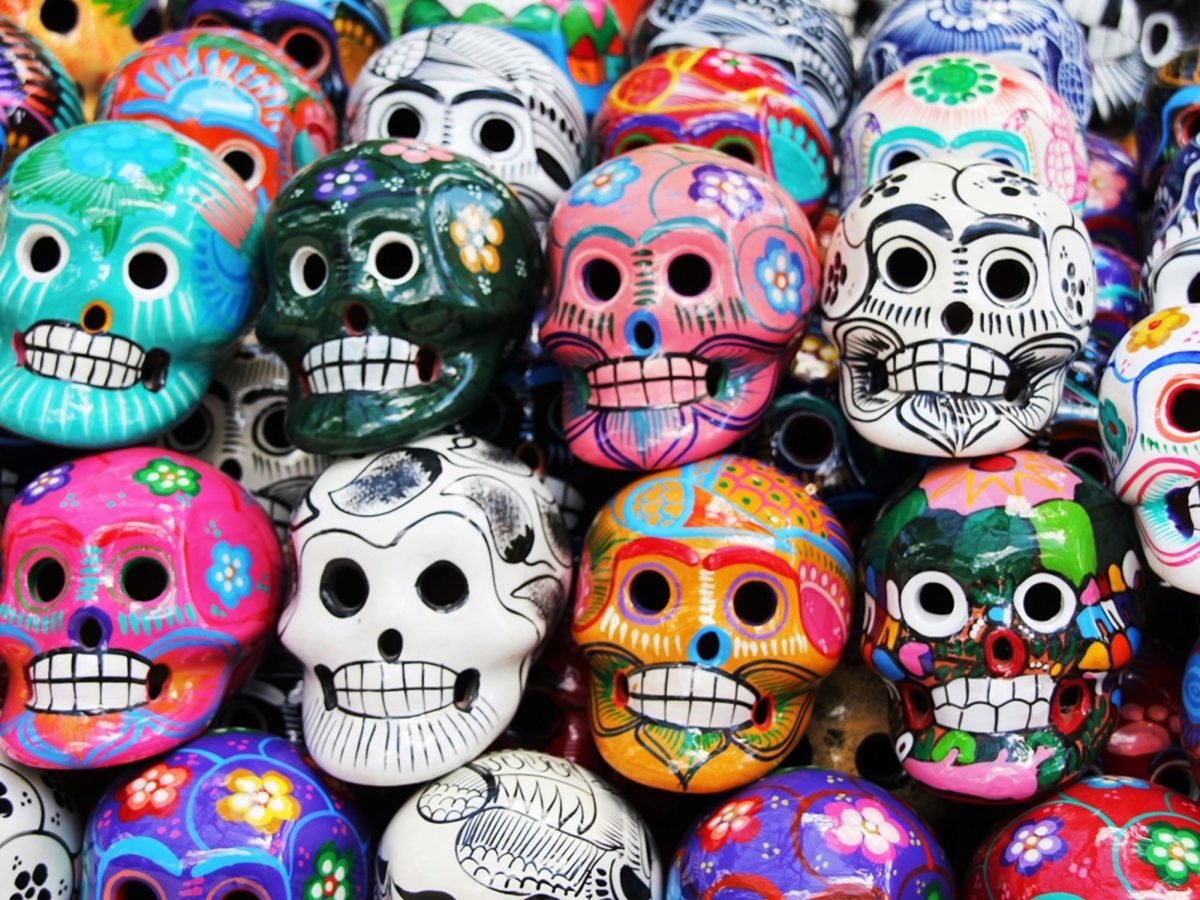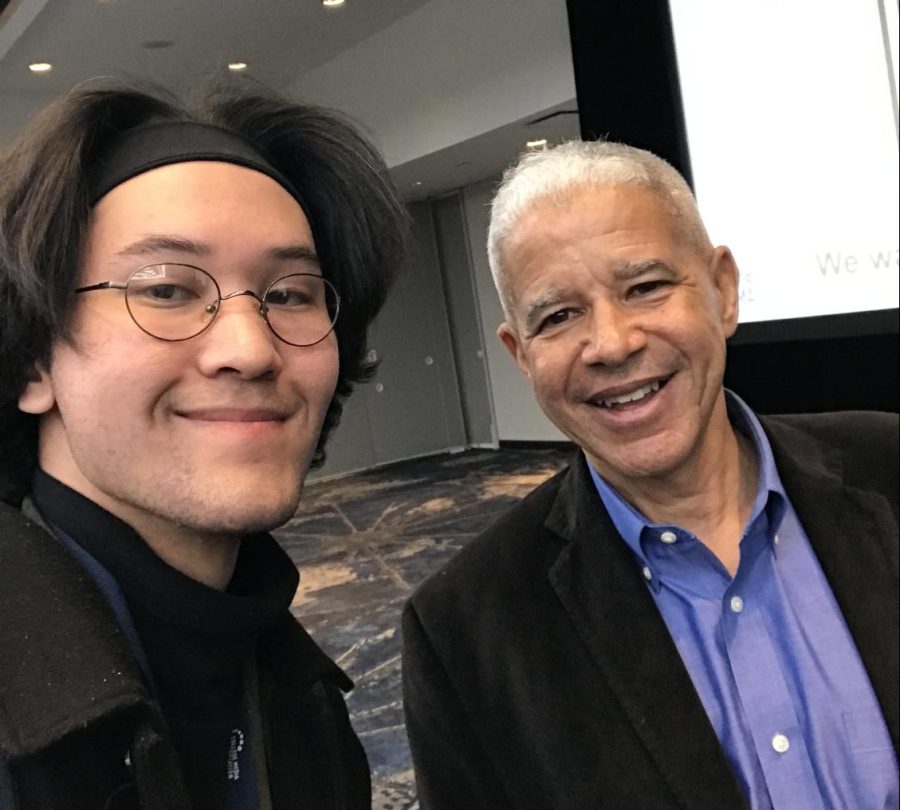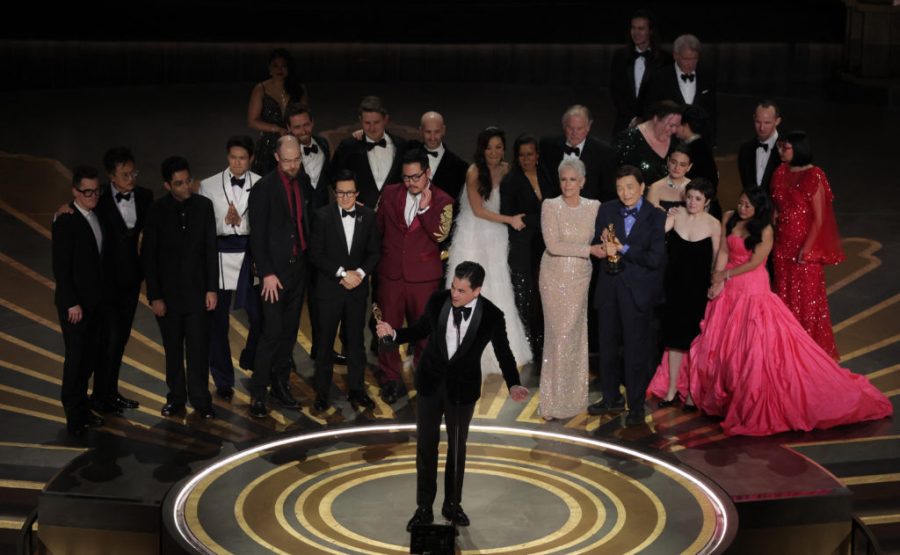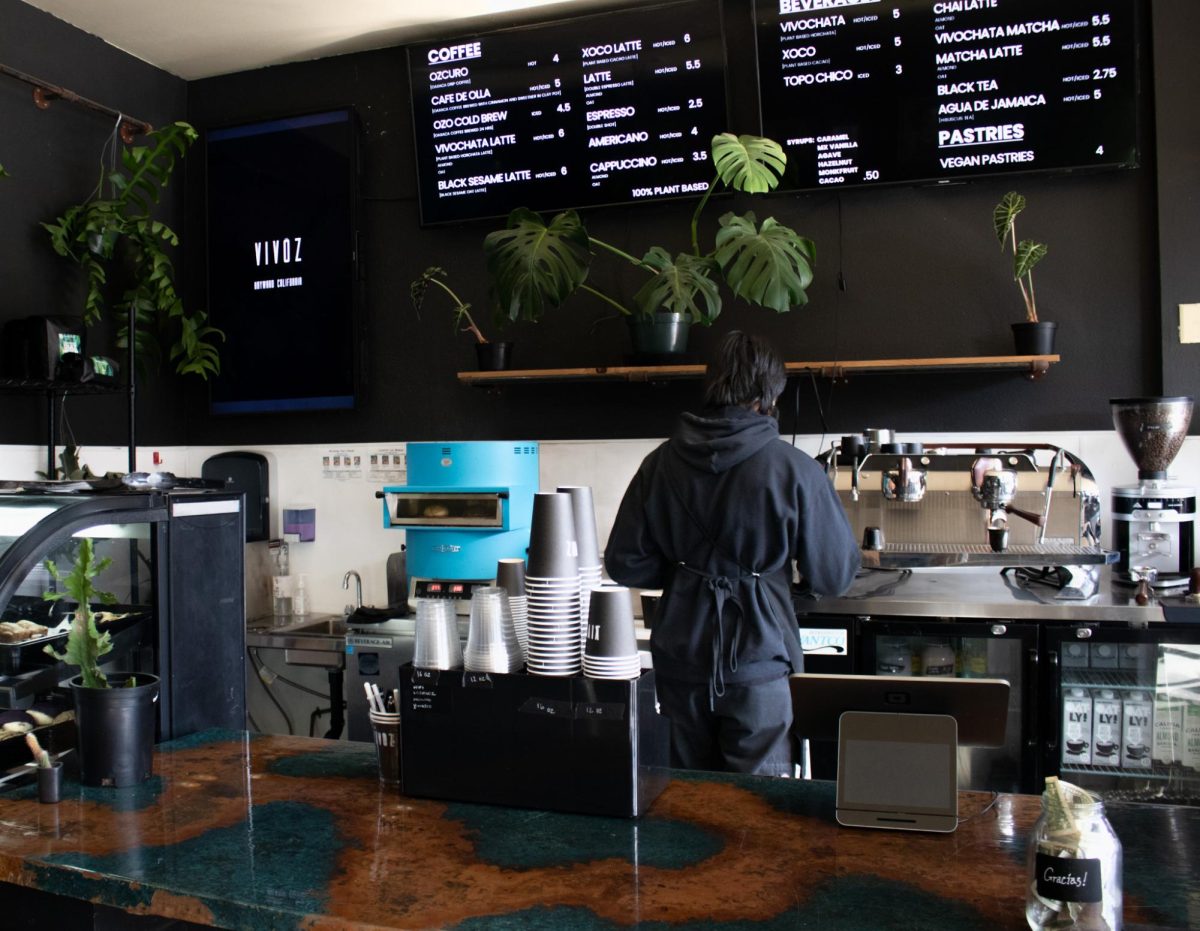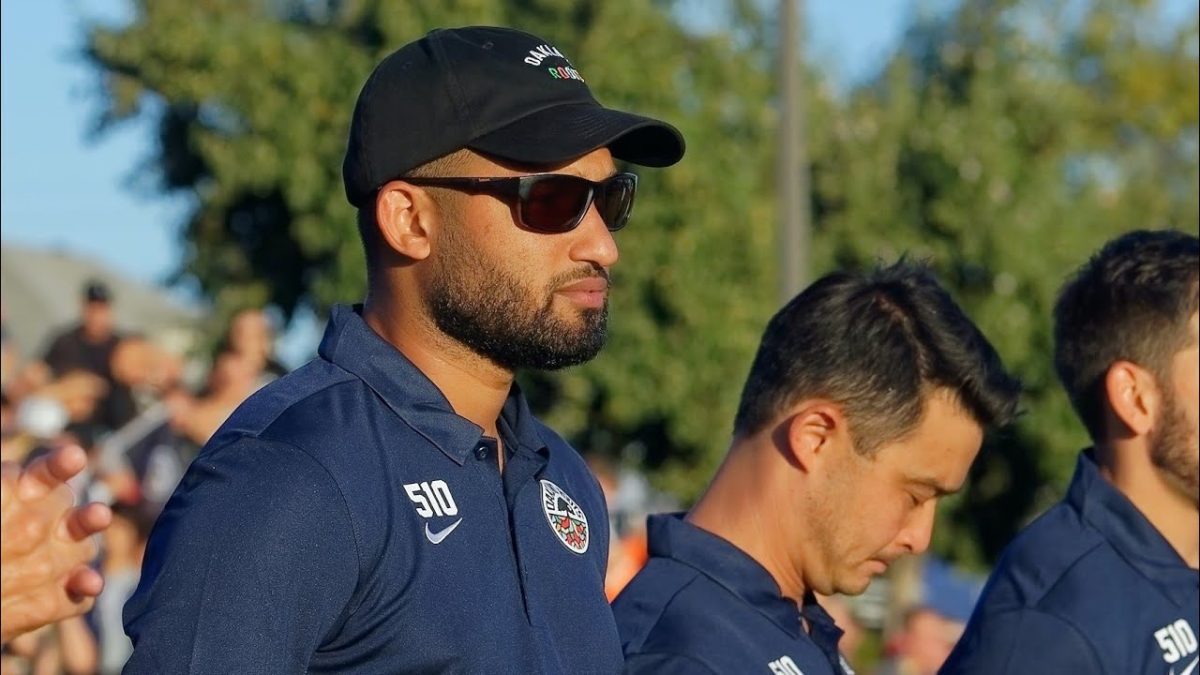Sean C. shuffles a few yellow, five-dollar chips with his left hand and slides $50 across the green felted table with his right. Next to his bet, in the middle of the table, lie the six of hearts, the seven of hearts, the queen of clubs, and the $65 already in the pot.
A young Asian player wearing sunglasses and a hoodie matches Sean’s bet. The dealer flips over the fourth card, also known as the turn, and shows the seven of diamonds. The Asian youth pauses for a moment and makes a bet of $65.
Sean puts together a taller stack of yellow and raises the bet to $165. His opponent goes all-in, making the bet $215 with the last of his chips and once again, Sean puts in $50 to end the betting. Sean turns over the six of spades and the seven of spades, making a full house.
Across the table, his opponent shows the four of hearts and the eight of hearts, making Sean a 98 percent favorite to win the hand. As the fifth and final card is turned over, players from across the casino walk over to investigate the commotion at Sean’s table.
When they get there, the five of hearts looks back at them, giving the Sean’s opponent a straight flush, the last card in the deck that wins him the hand, and a pot worth just short of $600.
“It takes a certain emotional detachment to deal with the ups and downs of poker,” Sean said. “That’s an essential part of being a grinder.”
Since the explosion of online poker’s popularity in 2004, the game’s field of players has grown exponentially. According to the Poker Players’ Alliance, there are over 15 million online poker players in the United States today.
This year, over 7,300 people played in the $10,000 World Series of Poker Main Event, nearly 5,000 more entrants than six years ago.
Between the big winners and losers, the weekend players and the celebrity pros, players like Sean, a 33-year old Berkeley resident, play poker so they can pay the bills and make ends meet. These players are known as grinders.
“A grinder is a player who is relatively conservative with their bankroll and spends a lot of time in the game,” Sean said. “They pick optimal spots in the game to make their moves, ‘grinding’ their way up the ranks. It’s a slower process, but it provides less exposure to risk, less relying on luck, and less risk of ruin.”
Sean picked up poker in 2006 and began playing professionally by 2007.
“I realized the first time I played poker that even though I wasn’t any good at it, there was money to be made,” Sean said. “Recreational players treat the game like craps or roulette, hoping to get lucky. Serious players recognize that the game spins on two major axes: mathematics and psychology. In the short term, luck can be a dominant factor, but given a long enough run, skill will always trump luck.”
For the last three years, Sean has been a grinding at the Oaks Card Club in Emeryville, playing Spread-Limit Hold-Em and Omaha Hi-Lo. He makes an average of $40/hour, though the amount of time he plays from month to month always changes.
“I play anywhere between 20 to 110 hours a week,” Sean said. “To play this game regularly, you have to be prepared for a weird schedule. Whether you stay or leave depends on how profitable the table is. Sometimes you plan to play for eight hours and leave after 45 minutes. Sometimes you play for 25 hours because some rich doctor is handing you your rent every couple of hours.”
Though grinders may enjoy the flexibility of their work schedule, the uncertainty of how their session will end makes each hour at the table a stressful one.
“Being a professional poker player is like working without a safety net,” said Sean. “People with a paycheck know the money is going to be there. A poker pro could lose his shirt or put aside several months’ worth of living expenses. Either way, players deal with a lot of stress because that net isn’t there.”
For those that play long enough, losing is inevitable. Sometimes that means losing a few buy-ins or a few hundred dollars. Other times it means losing your whole bankroll.
“I went bust because of bad bankroll management,” said online grinder Jeremy Priest. “I started buying into more expensive tournaments after winning a first-place prize of $4600. I was going for the big score and wasn’t really thinking about the repercussions that could happen. When you go into a freefall, it’s like you don’t realize it until you look at your Poker Stars account and it shows zero.”
“I’m on a hiatus from poker right now,” said CSU East Bay senior Pedrito Gella, “but I used to play several times a week. I went on a few big rushes, but I lost quite a bit too. In the last three years, I estimate to be down about $10,000. I always think about what I could have done with that money.”
Since the economy crashed in 2008, nearly every industry has felt the recession’s destructive effects and poker has been no exception. While the game remains profitable for some, both winning and losing players alike are noticing a shift in trends that clearly shows the poker scene is not as promising as it used to be.
“The profitability of poker comes from the discretionary income of recreational players,” Sean said. “Now that we’re in the worst recession in recent memory, no one has extra money to spend on the game. The number of bad players and how bad they play is dropping. Reno and Las Vegas are drying up. Hundreds of dealers in Nevada have been laid off. Poker, in general, has fallen with the economy.”
“For anyone considering taking up poker as a career today,” said Priest, “I would tell them to pick another profession. Several pros would say the same. Of all the players that tried to go pro five years ago, only about one percent succeeded in making a living off it today. Just because it’s a lifestyle I choose doesn’t mean it’s right for everyone.”
As the casino door closes behind him, Sean cringes at the morning light creeping over the concrete horizon of apartment buildings and looks forward to going to sleep. In the eyes of many people, gambling is an addiction, a sin, or a path to personal bankruptcy, but for Sean, it’s just another night at the office.
“Poker is gambling,” said Sean. “You can lose, but if you know what you’re doing, it’s gambling with an edge. That’s really what any smart financial investment is: a gamble with the expectation of a positive return.”







